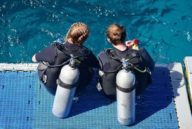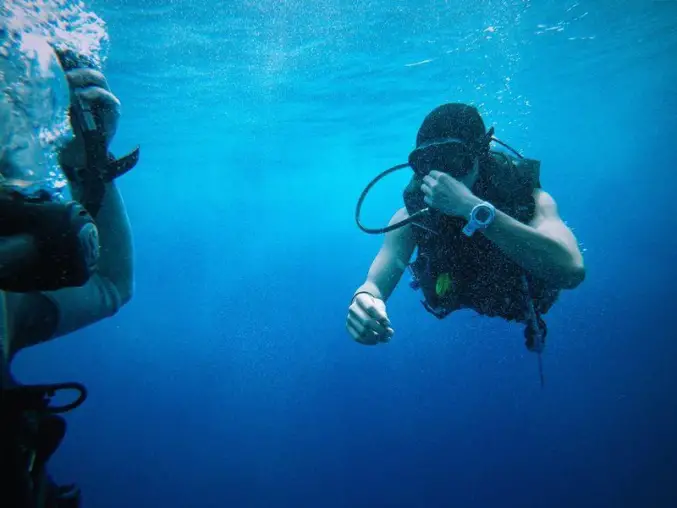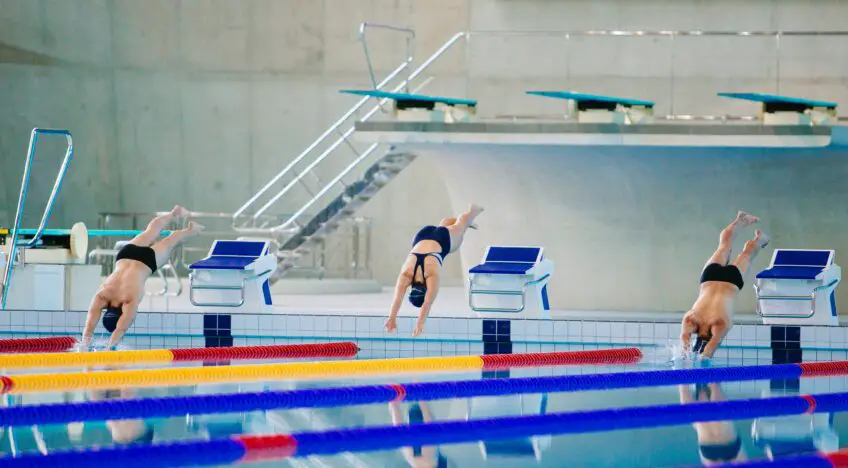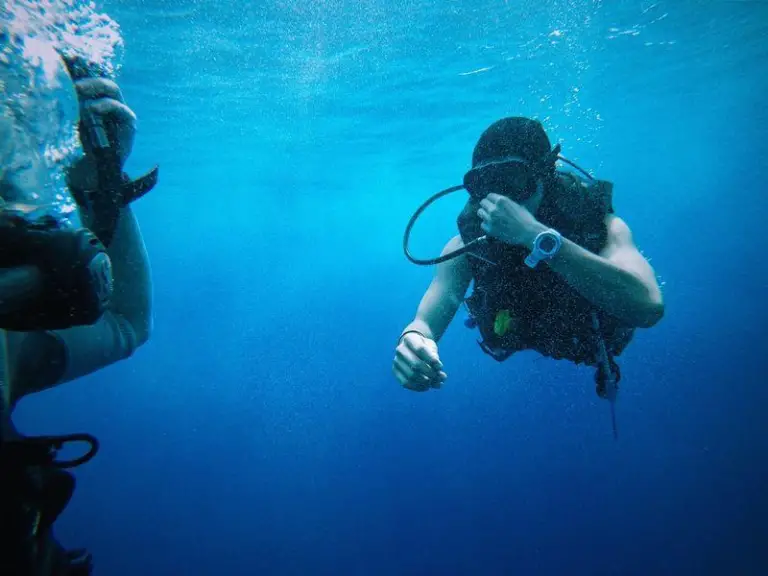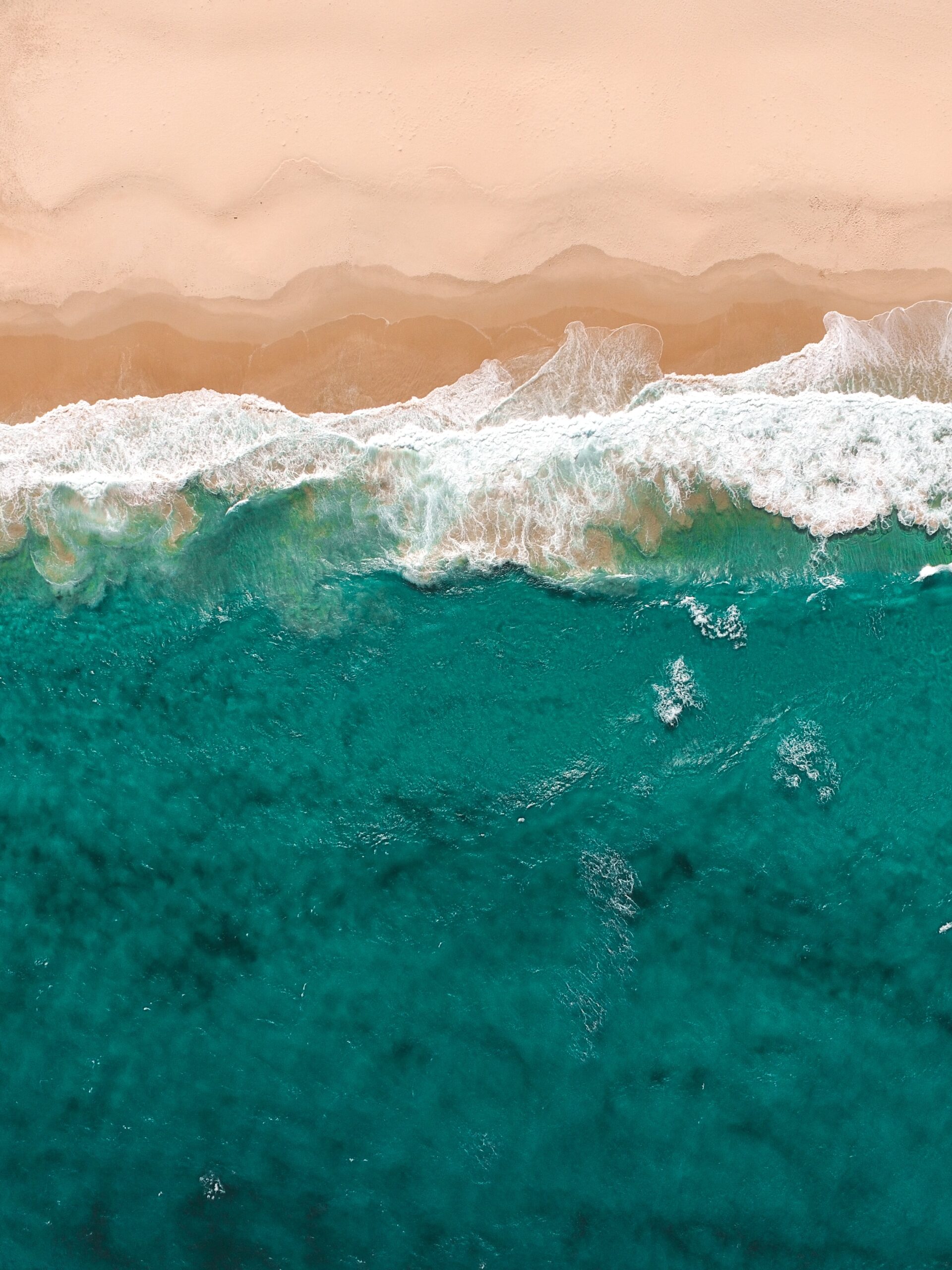
Few experiences rival the exhilaration of diving headfirst into frigid waters, be it a crisp pool, a serene lake, or the bracing embrace of the open sea.
The shock of icy immersion sends a rush through your veins, leaving you wide awake, invigorated, and perhaps questioning your choice – “Why didn’t I dip a toe in first?”
Cold Water Swimming: Health Implications and Misconceptions
This initiation into the world of cold water swimming is a shared narrative among many aquatic enthusiasts. Yet, amidst the thrill, have you ever pondered the potential effects of this icy rendezvous on your well-being? Can swimming in cold water make you sick or compromise your health in any way?
In the following expansive exploration, we delve into the realm of cold water swimming, dissecting its possible risks, and effects on health, and providing invaluable tips to ensure your safety while indulging in the exhilarating charm of a chilly swim.
Can Cold Water Swimming Increase the Risk of Cold or Flu?
Contrary to widespread belief, exposure to cold weather or swimming in cold water does not directly cause colds or the flu. These ailments are the result of viral infections.
Nevertheless, cold exposure can render your body’s immune defenses less effective, potentially heightening your susceptibility to viral infections, particularly if you are fatigued or already in a weakened state.
Understanding the Health Risks Associated with Cold Water Swimming
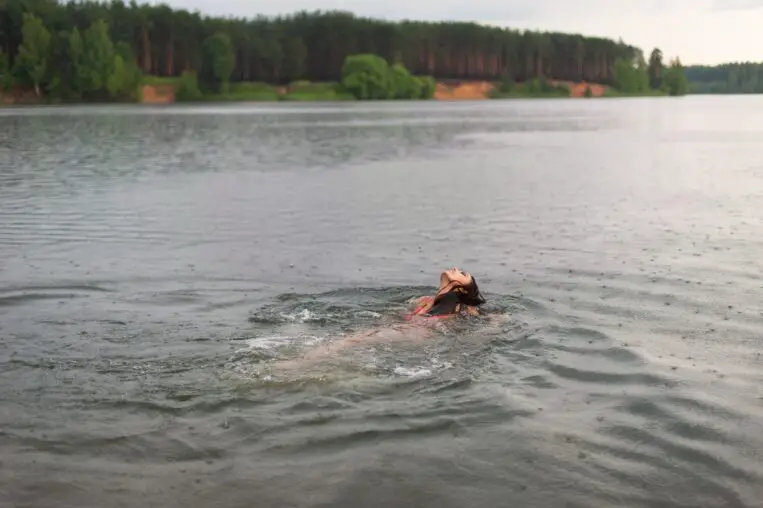
The primary health risks linked to cold water swimming encompass hypothermia and sudden immersion syndrome. Hypothermia emerges when your body loses heat at a rate surpassing its heat production, leading to a perilously low core body temperature.
Conversely, sudden immersion syndrome may induce a gasping reflex, resulting in the inhalation of water, or a swift elevation in heart rate and blood pressure, with the potential to culminate in cardiac arrest, particularly for individuals with pre-existing heart conditions.
There is also the phenomenon of “after drop,” where core body temperature continues to plummet upon exiting cold water, manifesting as chills, fatigue, and, in severe instances, loss of consciousness.
Additionally, cold water swimming carries the risk of skin problems, ear infections, and the exacerbation of respiratory conditions in those predisposed.
The Immediate Aftermath: Can You Get Sick Right After a Cold Water Swim?
Although you may not succumb to illness immediately after a cold water swim, certain symptoms associated with cold exposure can manifest swiftly. These may include early signs of hypothermia, such as shivering, impaired speech, and decreased motor function.
Furthermore, a sudden plunge into cold water can precipitate a rapid increase in heart rate and blood pressure, potentially precipitating complications for individuals with pre-existing heart ailments.
The Impact of Cold Water Swimming On The Body
The moment your body immerses itself in cold water, it initiates several physiological responses.
Firstly, heart rate and blood pressure may soar abruptly, posing a hazard to those with cardiovascular vulnerabilities. Secondly, cold water may elicit the “cold shock response,” characterized by involuntary gasping and hyperventilation.
With repeated cold water exposure, a decrease in core body temperature becomes probable, culminating in the onset of hypothermia. Cold water can also influence muscle and nerve function, potentially causing cramping and impairing swimming proficiency.
Building Resistance: Does Regular Cold Water Exposure Boost Immunity?
Cold water swimming has been documented to stimulate the immune system, prompting an elevation in white blood cell count and other immune response indicators.
Nevertheless, recurrent cold water exposure can subject the body to stress, potentially undermining immune defenses and elevating the risk of infection in the long term.
Protecting Your Health: Tips for a Safer Cold Water Swim
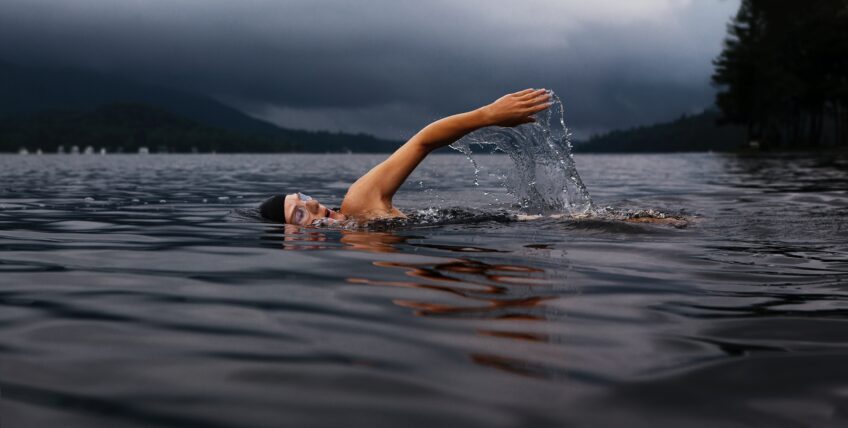
To shield yourself against potential illness during cold water swimming, gradual acclimatization is imperative. This entails incrementally extending your time spent in cold water over several weeks or even months.
Equipping yourself with appropriate gear, including wetsuits, neoprene gloves, and swim caps, can provide additional protection. Crucially, thorough post-swim warm-ups are essential to ward off the dreaded “after drop.”
Finally, attuning to your body’s signals and promptly discontinuing swimming if you feel unwell is paramount.
Safe Swim Duration: How Long is Too Long in Cold Water?
The permissible duration for cold water swimming hinges on several variables, encompassing water temperature, your acclimation level, attire, and individual health. For instance, in water temperatures of 60°F, the risk of hypothermia can arise within 30 minutes or less in the absence of insulating gear such as a wetsuit.
For novices in cold water swimming, commencing with brief swims and gradually prolonging your time in the water as your body adapts to the temperature is a prudent approach.
Defining “Cold”: Temperature Thresholds for Cold Water Swimming
The perception of “cold” in cold water swimming is subjective and contingent on individual tolerance.
Nevertheless, as a general guideline, water at or below 70°F (21°C) is typically considered cold for most swimmers. Ideally, water temperatures closer to 80°F are preferred for a comfortable swim, obviating the necessity for a wetsuit to stave off hypothermia.
Post-Swim Precautions: What to Do if You Feel Unwell After a Cold Water Dip
If you experience unwell sensations following a cold water swim, it is imperative to promptly exit the water and initiate the warming process. Symptoms suggestive of hypothermia, including intense shivering, coordination impairment, slurred speech, and drowsiness, mandate immediate attention.
Seek medical assistance if you or anyone else exhibits these signs. Additionally, consume a warm, sugary beverage and ingest nourishment to kindle internal heat generation. If symptoms endure, do not hesitate to contact emergency medical services.
Conclusion
The pursuit of cold water swimming is a captivating endeavor, replete with invigorating sensations and myriad health considerations. Through an exhaustive examination of its potential ramifications, this article equips you with the knowledge to embark on cold water swims safely and judiciously.
By balancing the allure of a frigid aquatic adventure with prudence and adherence to safety measures, you can revel in the exhilarating thrill of cold water swimming while preserving your well-being.
